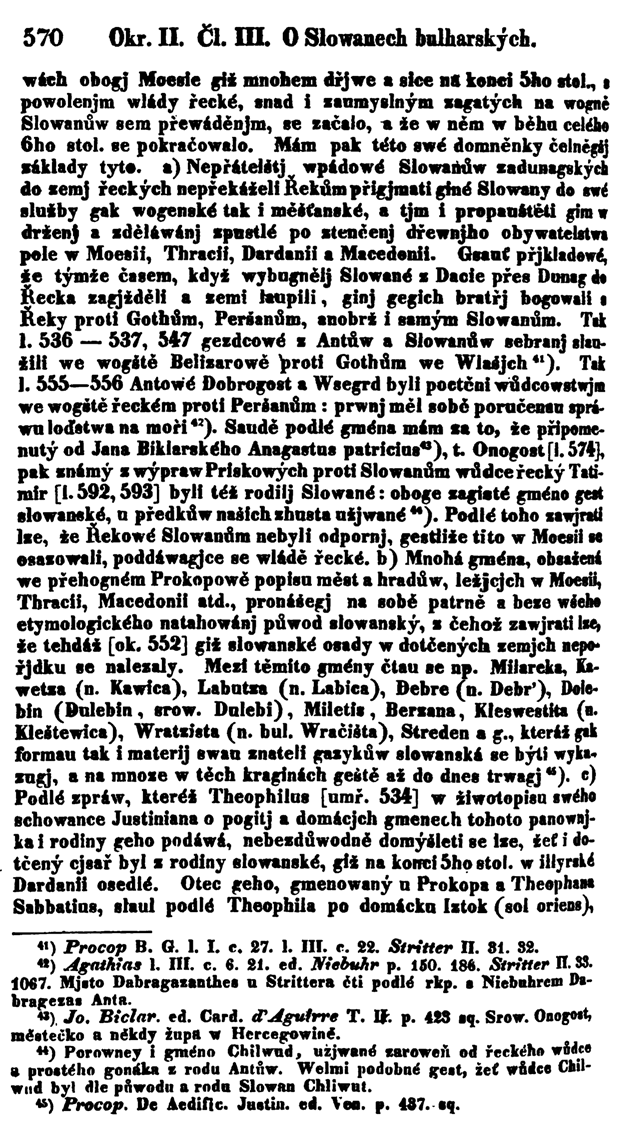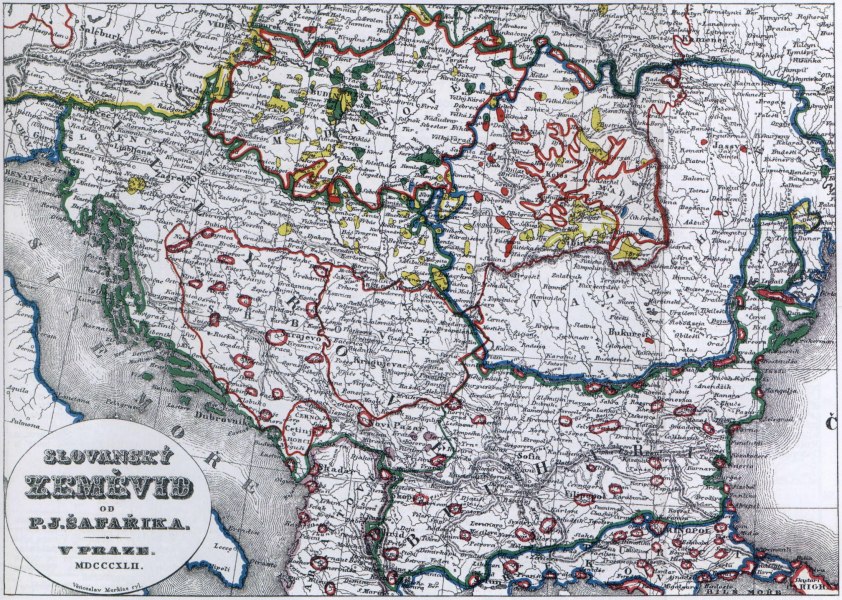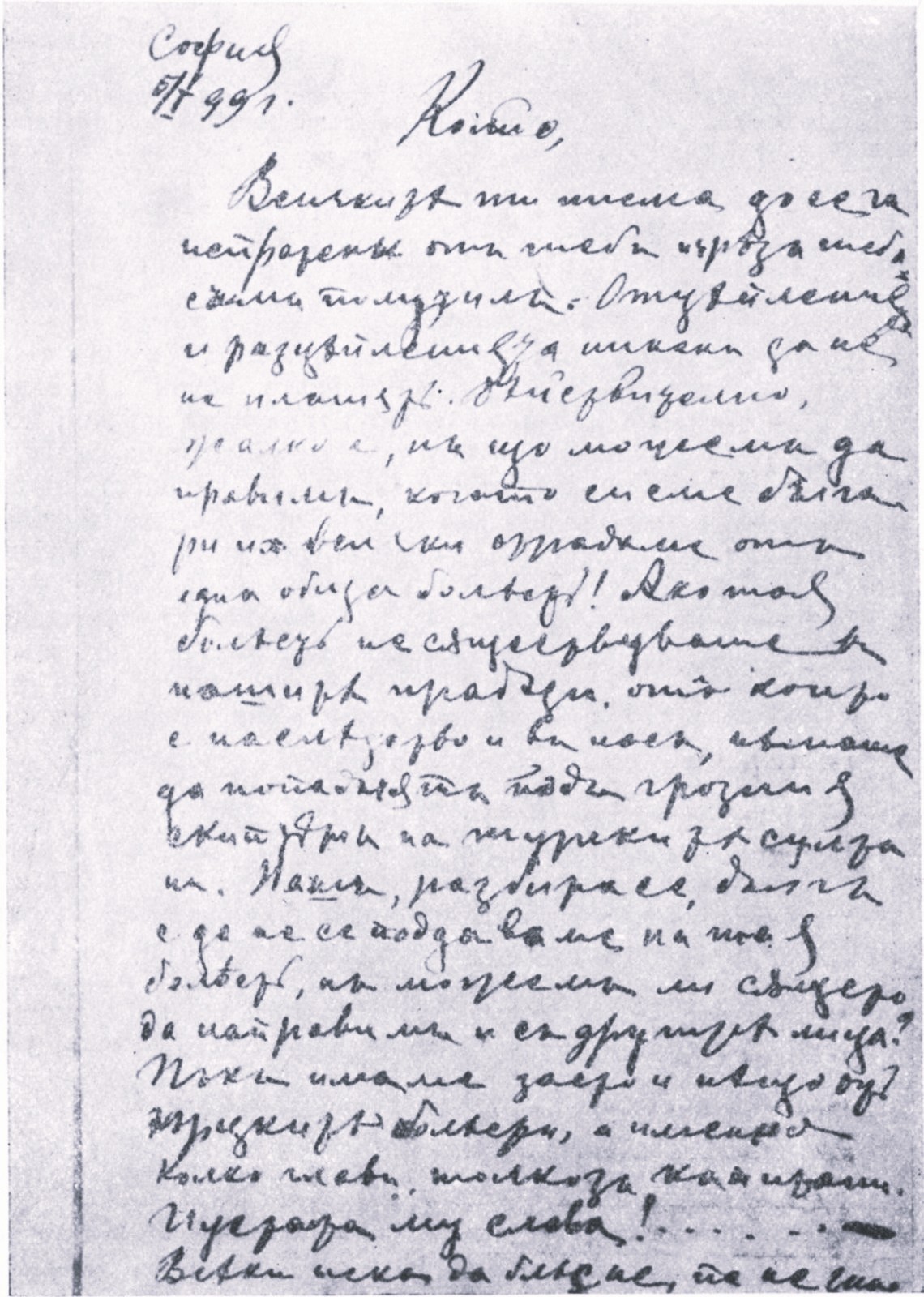site.btaAssociation of the Descendants of Refugees and Migrants from the Territory of the Republic of North Macedonia and friends: Protest to the President of the Slovak Republic


To the President of the Slovak Republic
Mr. Peter Pellegrini
To all freedom-loving representatives of the brotherly Slovak people
Copy to the European Commission and the European Parliament (Group for the Western Balkans)
Regarding falsifications and support for the policy of systematic persecution of Bulgarians in North Macedonia and the destruction of their cultural and historical heritage
Dear Mr. Pellegrini,
From the mass media in North Macedonia, we have learned that during your visit there, after a meeting with your host and colleague, Mrs. Gordana Siljanovska-Davkova, you stated that the process of accession to the European Union should be based solely on the fulfillment of criteria and that no country should use it to resolve its own issues or hold other states “hostage” by setting additional conditions. You justified this position by claiming that North Macedonia has been negotiating EU membership for almost 20 years, has made difficult decisions, but has nevertheless not received a clear position from the EU. You described this as “gambling with people’s trust.”
In an effort to demonstrate support for your hosts, you declared in Skopje:
“We – as Slovakia – stand firmly by your side and will support you in every possible way. Because we are convinced that the future of the European Union lies in its enlargement, its security depends on the inclusion of the countries of this region, and I am convinced that your country has a secure place as a member of the EU.”
As an association representing a group of more than 400,000 Bulgarian citizens — descendants of refugees or settlers from the territory of today’s Republic of North Macedonia — who are part of approximately 1.3 million Bulgarian citizens with origins in the geographic region of Macedonia, we are deeply outraged by your statement. We declare that it contradicts objective facts and European values. Through it, you promote division and disunity within Europe at a time of a global geopolitical confrontation passing through the Western Balkans.
It is a false claim of Skopje’s official propaganda that during the past 20 years it has been implementing reforms at the cost of difficult decisions. The state changed its name, but this was entirely logical. The Republic of North Macedonia occupies only 37% of the territory of the geographic region of Macedonia and therefore cannot have a monopoly over that name. In this way, it was prevented from pursuing an irredentist policy.
At the same time, North Macedonia only imitates reforms, while its fundamental policy since 1945 remains unchanged – a long-standing system of discrimination and cultural cleansing has been carried out against everything related to Bulgaria, including against persons who have preserved their Bulgarian identity despite constant repression and hate speech.
Taking this situation into account, in 2022, after Bulgaria lifted its veto, the European Union unanimously adopted the Negotiating Framework for North Macedonia’s EU accession, one of the main requirements of which is to amend the Constitution and include the local Bulgarian community. This is the only possible way for it to become equal with the other communities in North Macedonia and to end its discrimination.
On October 14, 2025, in Skopje, you criticized this decision! We ask: what does this stance of yours represent, given that Slovakia itself voted in favor of adopting this Negotiating Framework? Do you intend to revise your position, and if not – why do you make such statements, which in practice support the regime in Skopje in avoiding reforms?
We would like to draw your attention to the fact that human rights are universal, and their protection is not a bilateral dispute. How would Slovakia react if Ukraine began to implement a policy according to which the Slovak population on its territory were declared not to be Slovaks but “Zakarpats,” and from the local Slovak dialects started to create a separate “Zakarpats” language, claiming that it had nothing in common with Slovak? Would the defense of such deprived rights be considered a bilateral issue, or would it be the duty of every democratic state to support all those who suffer around the world?
To help you understand the essence of the problems in North Macedonia, we remind you that the Bulgarian nation was officially recognized in 1870 within the framework of the Ottoman Empire. In all official censuses of the population on the territory of today’s Republic of North Macedonia up to 1912, it was registered as part of the Bulgarian people. At the same time, not a single ethnic Macedonian was registered. European ethnic cartographers and scholars, including Slovakian Pavel Šafařík, also recorded only Bulgarians. (Appendix 1) They had their own Bulgarian churches, schools, and other cultural institutions. All of these were banned and destroyed by Serbia after it occupied this territory in 1913.
In 1878, only a part of the Bulgarian nation was included in the newly liberated Bulgarian state. Macedonia and Thrace were returned to the Ottoman Empire, but the Bulgarian people there retained their cultural and educational rights. In 1893, the Internal Macedonian–Adrianople Revolutionary Organization (IMARO) was founded, whose political program was the common territorial autonomy of Macedonia and Thrace within the framework of the Ottoman Empire.
Your statement that Gotse Delchev was some kind of “Macedonian revolutionary” represents a gross distortion of the facts and is offensive to the Bulgarian people. Gotse Delchev himself identified as Bulgarian; he wrote in the standard Bulgarian language, which was also the language of all legal and illegal documents of IMARO. (Appendix 2) Gotse Delchev never fought only for Macedonia. In light of his political program, he may be called a “Macedonian–Adrianople revolutionary,” but by no means solely a “Macedonian.” In the same way, Slovak cultural and educational figures in Ukraine may be referred to as “Zakarpats,” but that does not mean they are not Slovak.
Finally, we would like to assure you that no one in Bulgaria denies the existence of a contemporary Macedonian identity and the right of its bearers to call their language, in accordance with the Constitution of North Macedonia, “Macedonian.” However, we support the struggle of our relatives and friends in North Macedonia who have preserved their Bulgarian identity to be able to express it freely and to continue calling their mother tongue by its centuries-old name – Bulgarian. We also state that the place of North Macedonia is in the European Union, but before that, it must undergo reforms to break with the vicious practices of the totalitarian past and to prevent it from playing the role of a Trojan horse for Moscow and Belgrade within the EU.
In view of all the facts presented above, we propose to you the following package of 11 points:
- Slovakia should clarify that its support for North Macedonia’s European integration is conditional upon the implementation of the 2022 Negotiating Framework, including respect for the rights of the local Bulgarian community.
- Slovakia should state openly that the inclusion of the Bulgarian community in the Constitution of the Republic of North Macedonia is a necessary initial and indispensable criterion for progress in the negotiations.
- Slovakia should insist that every intergovernmental conference be preceded by a review based on clear indicators of progress regarding the rights of Bulgarians; in cases of regression – the freezing or reversal of negotiating chapters.
- Slovakia should support a joint OSCE/HCNM + Council of Europe (FCNM/ECRI) mission for annual monitoring of hate speech, violence, and institutional discrimination against Bulgarians.
- Slovakia should demand guarantees for freedom of association, the cessation of repressive measures against Bulgarian clubs, and effective investigations of assaults and acts of vandalism.
- Support for the possibility of elective education in the standard Bulgarian language, the provision of educational materials and media services for the Bulgarian community, and revisions of school curricula to remove hate and stereotypes.
- Progress in the chapters “Education/Culture/Public Policies” should be linked to verifiable results from the Joint Historical Commission established under the Treaty of Friendship, Good Neighbourliness, and Cooperation between the Republic of Bulgaria and the Republic of Macedonia (2017), which forms an integral part of the European Negotiating Framework.
- Ensure free access to and preservation of Bulgarian monuments, archives, and church sites; establish joint expert groups for inventory and restoration.
- Support international supervision of censuses and registers to guarantee free self-identification and the absence of administrative pressure.
- Slovakia should endorse a roadmap with concrete deadlines and public reports to the EU Council concerning the above points.
- We call for the avoidance, in future statements, of any language that devalues the rights of the Bulgarian community, and for the use of wording consistent with European standards on the rights of ethnic communities.
We are convinced that such a position will strengthen Slovakia’s authority as a state that defends European values and human rights without double standards. Our protest is not directed against the Slovak people, but against any action that could legitimize the continuation of anti-Bulgarian discrimination in North Macedonia.
Respectfully,
CO-CHAIRMEN: Prof. Trendafil Mitev, Assoc. Prof. Spas Tashev, Iliya Stoyanovski
SECRETARY: Dimitar M. Dimitrov
Sofia, 17 October 2025
Appendix 1
The great Slovak scholar Pavel Jozef Šafařík writes in his classic work Slavic Antiquities (1837) that Bulgarians have inhabited Moesia, Thrace, and the whole of Macedonia since ancient times.




Appendix 2
Letter in literary Bulgarian from Gotse Delchev to the IMARO voivode Nikola Maleshevski, January 5, 1899:
“Separations and divisions should not frighten us at all. Indeed, it is sad, but what can we do, since we are Bulgarians and we all suffer from one common illness!”

/СТГ/
news.modal.header
news.modal.text